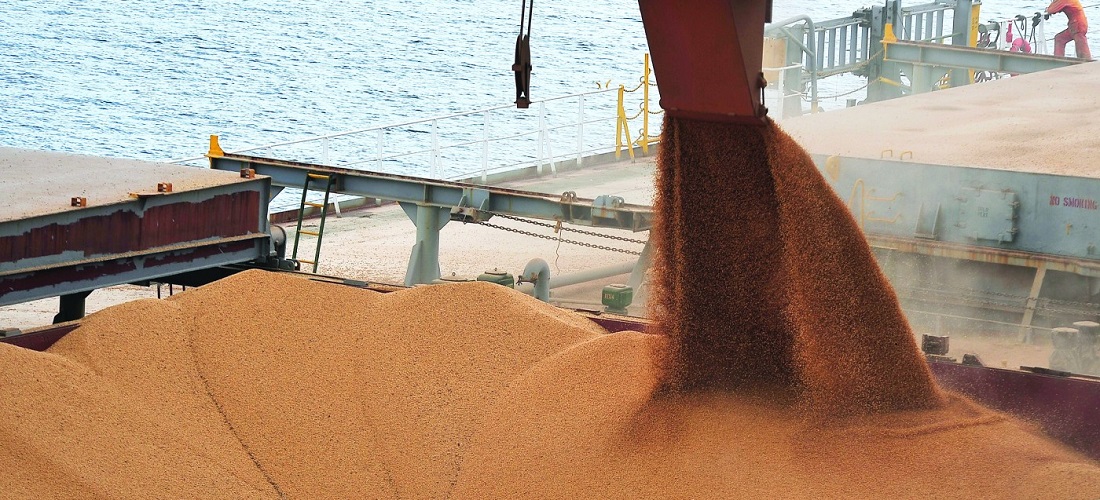
Brazil imports soy from USA after exporting record volumes to China
Nov, 03, 2020 Posted by Ruth HollardWeek 202046
On Monday, November 2, a grain-export terminal in the United States located near Baton Rouge, Louisiana, shipped 38,000 tons of American soy in a bulk vessel bound for Brazil. This is an unusual shipment since Brazil is the main global exporter of oilseeds, but it is dealing with rising prices.
Last month, Brazil temporarily suspended tariffs on imports of corn, soybeans, and soy products from outside Mercosur in an attempt to contain inflation. Due to record soy exports from Brazil to China this year due to the high dollar, the domestic supply of the grain was reduced, and a significant part of the next harvest will not arrive before January.
Of the approximately 56.3 million tons of soy that China imported between April and September this year, 48.9 million tons, or 86%, came from Brazil.
The export shipment of 38,000 tons of soy from the USA to Brazil represents the largest transaction of its kind since 1997 when the country imported more than 600,000 tons of oil from the USA, according to data from the US Census.
Last week, ABIOVE (the association of Brazilian soy-processing industries) said that US grains should be used for internal processing in Brazil. Larger imports, however, would require approval for certain genetically modified soybeans that are authorized in the US but not in Brazil.
China seeks new suppliers for oilseed
While Brazil is importing soy, China is seeking new suppliers in Africa. According to the Chinese news site, South China Morning Post, the country opened its soy market to Tanzania, as it slowly strives to reduce its dependence on Brazil and the United States, its main suppliers. An agreement with the African country was signed on October 26, according to Wu Peng, Director of the African Division of China’s Ministry of Foreign Affairs.
“Both China and Africa benefit from these strong ties that are forming,” said Peng in his statement. In return, Africa is expected to import machinery, electronics, and manufactured products from the Asian nation. Other countries such as Kenya, Ethiopia, Namibia, South Africa, and Botswana already have agreements with China for the export of agricultural products such as coffee, tea, avocado, soy, beef, and fruit.
Although the volume is quite limited and far from meeting China’s high demand – the Beijing embassy in Tanzania has estimated the demand for oilseed at 103 million tons per year – this is yet another measure the country has found to diversify its suppliers.
“Tanzania joins the list of countries that can capitalize on the huge soy export market. And it also provides new opportunities for Tanzanian farmers to find a reliable market for the product,” adds the embassy. Experts confirm that Chinese imports of African agricultural products are indeed increasing, albeit still on a small scale.
“Part of this comes from China’s desire to reduce its dependence on imports from the US and Brazil, even though African production is still too small to promote a real and effective difference in this trade,” explains Mark Bohlund, Senior Researcher at REDD Intelligence, in an interview with the South China Morning Post.
At the same time, political issues and important messages are transmitted in agreements such as these, as explained by Roberto Dumas Damas, Insper professor and economist specializing in international affairs. “If it were just a matter of pure supplier diversification, the Chinese would certainly not insist that it be published in the main local newspapers. It is basically a ‘read between the lines; I also know how to retaliate’. China’s subtle manner of sending subliminal messages is quite well known”, he says.
In August, the South China Morning Post had already highlighted a proposal for a “soy industry alliance” with Russia to deepen and intensify trade relations between the two countries. In addition to a union of industries and other links in the production chain, the alliance also predicted an increase in soybean production areas in both countries. Their estimate is that the Chinese are expected to import 3.7 million tons of Russian soybeans by 2024.
Sources: Agricultural News and Reuters
-
Sugar and Ethanol
Dec, 13, 2022
0
Brazil sugar, oil exports soar in early December
-
Automotive
Mar, 07, 2021
0
Automobile production at lowest level in February since 2016 crisis
-
Ports and Terminals
Feb, 21, 2024
0
Port of São Francisco: Agriculture brings about 15% boost in cargo volume
-
Other Logistics
Jun, 14, 2022
0
Rumo licensed to extend railway strech in Mato Grosso



